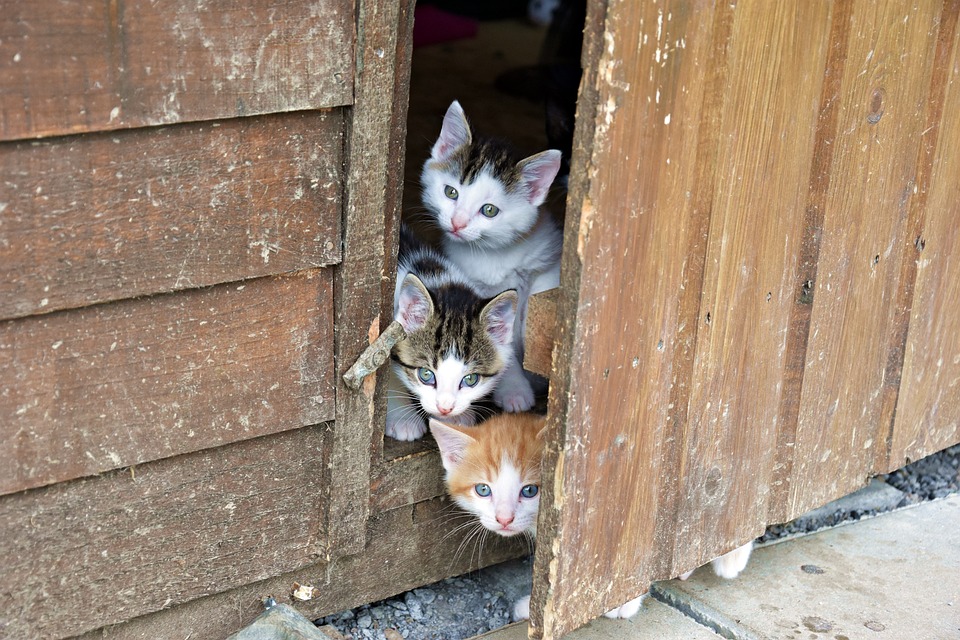Introduction:
As a cat owner, it is essential to pay attention to your feline friend’s health, including their eyes. Cats with sensitivities are prone to common eye irritations that can cause discomfort and even lead to serious complications if left untreated. In this article, we will discuss effective ways to prevent and manage these eye irritations, ensuring your cat’s visual health and overall well-being.
I. Understanding Common Eye Irritations in Cats
A. Conjunctivitis: Conjunctivitis, also known as pink eye, is a common eye irritation in cats. It is characterized by redness, swelling, discharge, and discomfort in the eye.
B. Corneal Ulcers: Corneal ulcers are open sores on the cornea, the clear outer layer of the eye. They can be caused by trauma, infections, or underlying health conditions.
C. Allergies: Cats can also have allergies that affect their eyes, causing redness, itching, and discharge.
II. Preventive Measures for Eye Irritations
A. Regular Eye Examinations: Schedule regular check-ups with your veterinarian to ensure any eye issues are detected early on. They can also provide guidance on proper eye care.
B. Environmental Factors: Keep your cat’s environment clean and free from potential irritants such as dust, pollen, and smoke. Consider using air purifiers to filter the air.
C. Proper Hygiene and Grooming: Clean your cat’s eyes regularly with a damp cloth or specialized eye wipes. Trim any long hair around the eyes to prevent irritation.
III. Managing Eye Irritations in Cats with Sensitivities
A. Consultation with a Veterinarian: If you suspect your cat has an eye irritation, consult your veterinarian for a proper diagnosis and treatment plan. They may recommend specific medications or treatments.
B. Eye Drops and Medications: Your veterinarian may prescribe medicated eye drops or ointments to alleviate symptoms and treat the underlying cause of the irritation.
C. Home Remedies and Natural Treatments: Some home remedies, such as saline solution or chamomile tea compresses, can provide temporary relief for mild eye irritations. However, always consult your veterinarian before trying any home remedies.
FAQs (Frequently Asked Questions):
Q1. How can I tell if my cat has an eye irritation?
A: Look for symptoms like redness, swelling, discharge, squinting, or excessive tearing in your cat’s eyes. If you notice any of these signs, it is best to consult a veterinarian.
Q2. Can eye irritations in cats be contagious?
A: Some eye irritations, such as conjunctivitis, can be contagious. It is important to isolate infected cats and practice good hygiene to prevent the spread of infection.
Q3. Is it safe to use human eye drops for my cat’s eye irritation?
A: No, it is not safe to use human eye drops for cats. The ingredients in human eye drops can be harmful to cats. Always consult a veterinarian for appropriate treatment options.
Q4. How often should I clean my cat’s eyes?
A: Clean your cat’s eyes regularly, especially if they have a history of eye irritations. Use a damp cloth or specialized eye wipes to gently remove any discharge or debris.
Q5. Are there any preventive measures I can take to reduce the risk of eye irritations in my cat?
A: Yes, keeping your cat’s environment clean, avoiding potential irritants, and practicing proper hygiene and grooming can help reduce the risk of eye irritations. Regular check-ups with your veterinarian are also crucial for early detection and prevention.
Conclusion:
Cats with sensitivities require extra attention when it comes to their eye health. By understanding common eye irritations, implementing preventive measures, and seeking proper veterinary care, you can effectively prevent and manage these conditions. Remember, early detection and treatment are crucial for maintaining your cat’s visual health and ensuring a happy and comfortable life for your feline companion.








